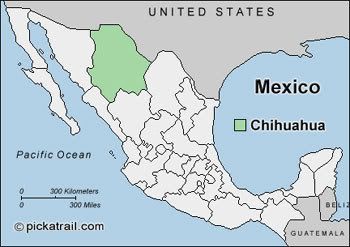The Unquiet, Malevolent Dead

The Death Pit, Ludlow, Colorado 1914
In this chapter, three monumental things occur. We finally embark on page 1,000 of our tale, The Villain Scarsdale Vibe is murdered, and the culmination of the political saga of Colorado miners reaches its historical apex in the Ludlow Massacre during the Colorado Coal Field War of 1913-14. In case you didn't follow the link in DJ's synopsis last week, please click here to read a short history of the war which is completely fascinating (and it's where all these photos came from). It also confirms that Pynchon is being historically accurate in his background for this week's tales of love and murder.
The section begins on page 1,000 at a hot-springs resort casino "up near the Continental Divide" where Vibe is addressing the greatest acronym since T.W.I.T., the Las Animas-Huerfano Delegation of the Industrial Defense Alliance (L.A.H.D.I.D.A.). Midway through the page, he begins a long soliloquy, "So of course we use them," that is positively operatic. Both Iago in Shakespeare's "Othello" and Claggart in Melville's "Billy Budd" were representatives of ultimate evil whose motivations were never explained by their creators, but in the opera versions by Verdi and Britten respectively, they both get a "Credo" aria to explain their point of view and Pynchon has decided to do the same thing. Like those characters, Vibe's own imminent doom is spelled out mid-aria, in this case, with the aside "He might usefully have taken a look at Foley, attentive back in the shadows. But Scarsdale did not seek out the eyes of his old faithful sidekick. He seldom did anymore." (1001:23)
The next day in his private train The Juggernaut on his way to the "coal war," Vibe encounters a spirit, whose presence usually terrifies him, but this time he's only curious, and after an odd exchange with the spirit, Vibe announces to Foley that he looks forward "to being one of the malevolent dead" (1002:16), which Foley understands from his Civil War experience to be "ghosts...filled with resentments, drifting, or stationed by cemetery gates and abandoned farmhouses where half-mad survivors wuld be mostly likely to see them...not the companionship he would have chosen."
The scene shifts to Frank and Ewball making their way to the striking mining town of Trinidad, where Ewball makes the observation that some of the Balkan-originated strikers must be ghosts (1003:12), "the unquiet dead, geography ain't the point, it's all unfinished business, it's wherever there's accounts to be balanced..." which prompts Frank to say, "Ewball, that is some bughouse talk." When the two get into Trinidad, they immediately notice Foley in front of the Columbian Hotel where Vibe is staying, and make a plan of attack, which includes the sly observation (1004:5), "They say Foley's a born-again Christer, so he can act as bad as he wants because Jesus is coming and nothin a human can do so bad Jesus won't forgive it." The irony of that remark is underlined when Frank and Ewball make a pathetic attempt to assassinate Vibe in the main street. Instead of following Scarsdale's imperious tone of command to shoot the anarchists, Foley instead lines up his Luger "with his employer's heart, and chambered the first round. Scarsdale Vibe peered back, as if only curious. 'Lord, Foley...' 'Jesus is Lord,' cried Foley, and pulled the trigger, proceeeding to empty all eight rounds..."

The Death Special
The narrative turns to Stray, who had been in Trinidad but decided to help out the tent colony in Ludlow filled with striking miner families. While she's dodging random machine gun fire from the militia, her son Jesse shows up after having hitched a ride on a train, which both dismays and warms her. Searchlights on towers are set up by the mining company and "began sweeping the tents all night long" which leads to the suggestion, "The Colorado militia were in fact giving light a bad name...In the tents, darkness in that awful winter was sought like warmth or quiet. It came for many to seem like a form of compassion."(1008:25) There's a welcome return of the Reverend Moss Gatlin, giving yet another great Anarchist sermon (1009:15), and we follow Jesse in his wanderings through the camp and among the militia, being young enough to still get away with it though it comes with the realization that "pretending to have a friendly chat with potential targets of their Death Special was a level of evil neither boy had quite suspected in adults till now." (1010:10)
Later, at the 19 Luglio Saloon, "named for the date back in 1900 when an Anarchist named Bresci assassinated King Umberto of Italy," Frank runs into Stray, who is looking like Michelangelo's Pieta while nursing a striker. After he brings up Ewball, she tells him, "Buy me one of whatever that is in your fist and I'll tell you the whole sordid tale." From here, we go through a brilliantly written scene (page 1012) where Stray FINALLY, after being with Reef, bad boy motorcyclists, Ewball, and god knows who else, realizes who Frank is and how he loves her. She invites him to the tent city, he tells her it's about ready to be razed by the militia, and her response is "Guess you better visit us soon, then."

Karl Linderfeldt, Mercenary
During Frank's visit, he catches sight of a real historical character, a truly malevolent proto-Blackwater mercenary named Karl Linderfeldt, who guided the Ludlow Massacre and who also murdered people for hire during the Mexican Revolution. Jesse arrives breathlessly from some adventure involving bullets, uncle and nephew bond over weaponry, and after realizing that "not much Frank could teach him," he starts to talk to Stray, "I wanted to say," Frank said. "Oh you been sayin it, don't worry." He gave her a closer look, just to make sure of her face. "Fine time to be getting around to this." (1014:15) This may be the single most romantic exchange in the 1,000+ novel, with its hundreds of pages filled with time and Frank's yearning for Estrella from the moment he met her.
Frank immediately comes up with an escape plan, the militia attacks, and we're in a scene of confusion and slaughter. After being caught by a militiaman named Brice, Jesse has a moment of grace and is allowed to escape, and the three of them "take shelter with hundreds of others...in the wide arroyo north of town, waiting for some letup in the shooting to get someplace safe. After a hallucinatory moment with Webb's dead hand on his shoulder, Frank wakes up and sees the awful slaughter. And here we come to one of the novel's serious morals (1016:14): "But it happened, each casualty, one by one, in light that history would be blind to. The only accounts would be the militia's." One proof of Pynchon's charge is that I was once again completely ignorant of this fairly essential history until reading this novel.

Ludlow Family
There's a gorgeously romantic section where Frank sends Estrella and Jesse off back home while he joins up with the strikers, "dead on their feet, not half a dozen words of English among them." After it's settled, Frank and Estrella face off. "Their embrace might not have been so close or desperate, but no kiss he could remember had ever been quite this honest, nor this weighted with sorrow." The last line invokes Orpheus and Eurydice "not looking back" once again, just as Yashmeen and Reef didn't look back at Cyprian.










